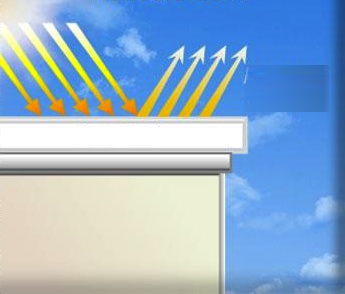It sound like something out of a Sci-Fi movie.
Researchers at Stanford University have developed a nanophotonic material that not only reflects sunlight and prevents heat from being absorbed, but it actually beams the thermal energy at a specific wavelength so that it leaves the earth's atmosphere.
A recent post on the Green Prophet blog details the discovery, which, if developed and implemented on a mass scale, would go along way toward improving the energy efficiency of buildings.
For instance, the Stanford research team, led by Shanhui Fan, professor of electrical engineering, said that by covering just 10% of a roof with the nanophotonic material would mitigate about a third of the building's cooling load, according Green Prophet.
(http://www.greenprophet.com/2013/03/nanophotic-building-panels-beam-sunlight-and-heat-into-cold-space/)
Related Stories
| Aug 11, 2010
BIM school, green school: California's newest high-performance school
Nestled deep in the Napa Valley, the city of American Canyon is one of a number of new communities in Northern California that have experienced tremendous growth in the last five years. Located 42 miles northeast of San Francisco, American Canyon had a population of just over 9,000 in 2000; by 2008, that figure stood at 15,276, with 28% of the population under age 18.







